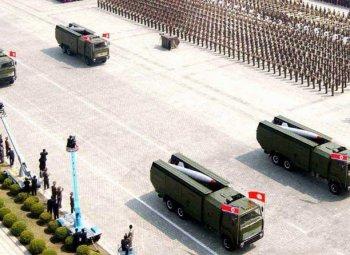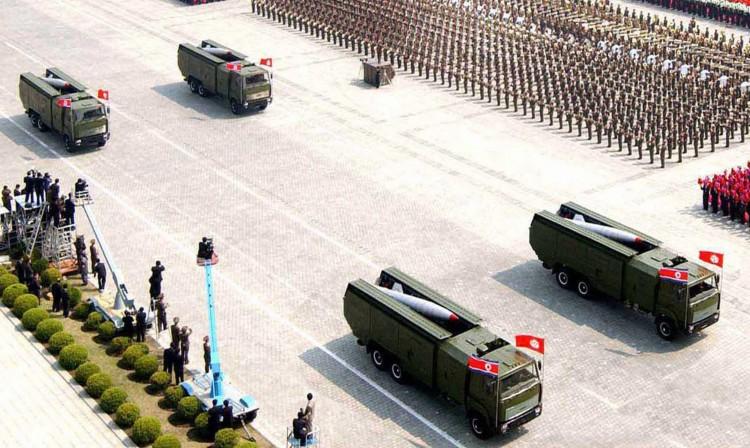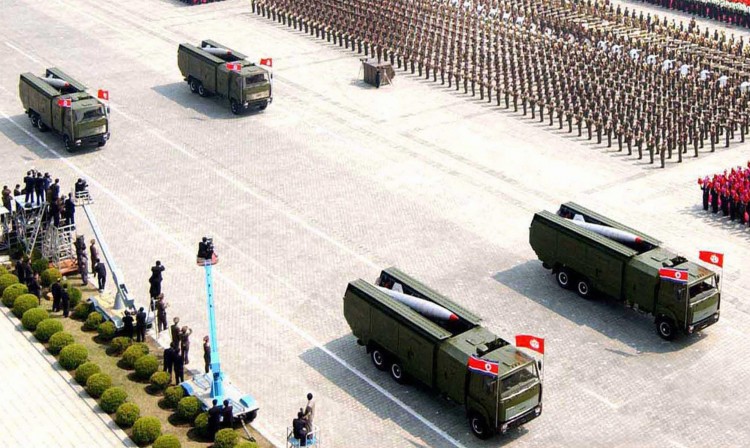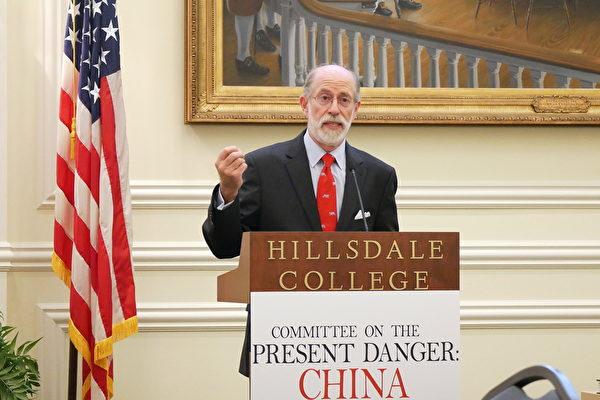Defense Secretary Leon Panetta said he was skeptical about the prospects for progress in nuclear talks with North Korea, warning that U.S. and South Korean forces need to prepare for the possibility of renewed North Korean provocations.
Last week U.S. and North Korean envoys met in Geneva to discuss a freeze on N. Korea’s nuclear weapons development programs. U.S. officials said the meeting did not settle the question of whether Pyongyang is serious about taking such steps; on the contrary, the country is suspected of aggressively developing its advanced weapons programs, such as missile development and cyberwarfare systems.
“I think there’s very little progress made. The North Koreans are trying to make it appear as if they’re willing to resume negotiations,“ Daniel Sneider, associate director at the Walter H. Shorenstein Asia-Pacific Research Center at Stanford University, said in a telephone interview. ”Mostly I think they’re doing that for the benefit of their sponsors in Beijing. But I don’t expect anything really to come out of this process.”
“The word ’skepticism' would be in order at this time about what may or may not happen in those discussions,” said U.S. Defense Secretary Leon Panetta, on his visit in South Korea as Pentagon chief.
Panetta met Thursday with South Korean leaders, and told reporters that Pyongyang’s “game of going between accommodation and provocation” needs to come to an end.
“North Korea remains a serious threat,” Panetta said, in an op-ed published in South Korea’s Chosun Ilbo daily. On the first day of his arrival in South Korea he also warned that U.S. and South Korean forces need to prepare for the possibility of renewed North Korean provocations.
Panetta added that the United States is committed to providing “a strong and effective nuclear umbrella over South Korea so that Pyongyang never misjudges our will and capability to respond decisively to nuclear aggression.”
Sneider reminded us of the nearly 60-year history of the conflict. “I think the problem is that we have seen a pattern of this kind of behavior from North Korea, not just in the last year, but you know, over a long period of history.”
Right now North Korea is facing “the economic problems, the food problems, the problems of the transition to a succession for Kim Jong Il. All those things may make North Korea even more unpredictable, and potentially more provocative, in its behavior,” he added.
It is Panetta’s first trip to Asia since becoming secretary of defense and his aim is to strengthen ties with allies of the United States in the region. His first stop was Indonesia, followed by Japan, and South Korea is his last stop.
The trip comes as the United States draws down its troop presence in Iraq and Afghanistan, and shifts focus to Asia, where a number of nations have disputes with China, and concerns over Beijing’s expanding military.
Panetta Skeptical Over N. Korea Talks
Defense Secretary Leon Panetta said he was skeptical about the prospects for progress in nuclear talks with North Korea, warning that U.S. and South Korean forces need to prepare for the possibility of renewed North Korean provocations.


By Sherry Dong
10/31/2011
Updated: 10/1/2015





